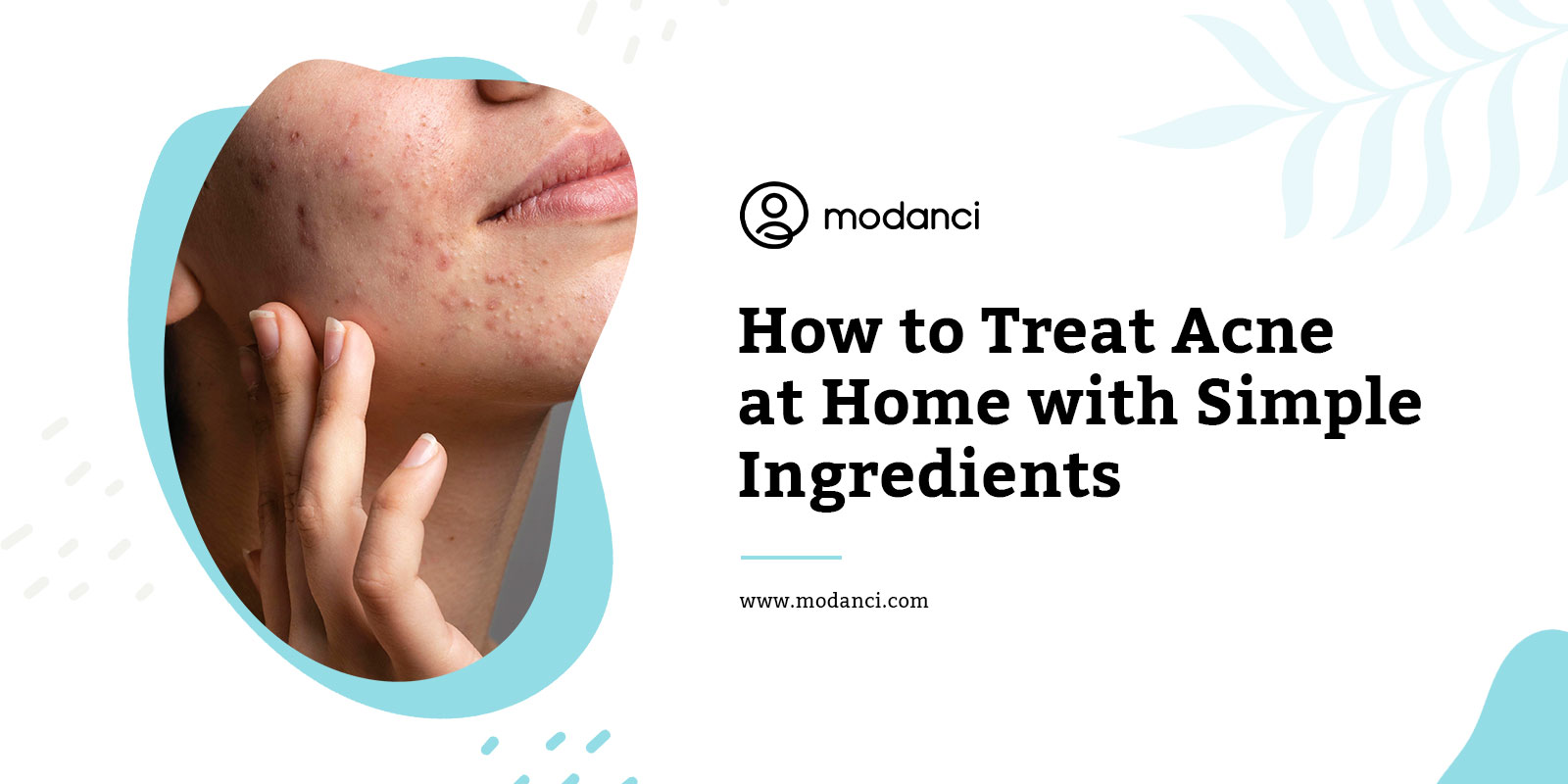Have you observed that you often experience red and sensitive bumps on your face, even with your most diligent skincare routine? These blemishes, commonly referred to as acne, are commonly seen in teenagers but can also affect people of other age groups.
Dealing with pimples is a common challenge we’ve all encountered, whether it’s an unexpected zit or stubborn whiteheads. While numerous skincare products claim to provide solutions, there may be times when you don’t have one readily available or prefer to avoid over-the-counter options. Whether you want to skip a trip to the store or prefer using natural ingredients, we have compiled 10 home remedies that can effectively treat various types of acne.
But, firstly, let us understand what acne is and what its causes are.
What is Acne, and what Causes it?
Acne is a common skin condition that occurs when your skin follicles become obstructed by oil and dead skin cells. It is prevalent among teenagers due to increased oil production by the sebaceous glands, but it can affect people of all ages, including adults in their 40s and 50s.
The primary cause of acne is clogging pores with sebum and dead skin cells. Each pore is connected to a sebaceous gland, producing sebum. Excess sebum blocks the pores, creating an environment for the growth of Propionibacterium acnes (P. acnes). The body’s immune response to these bacteria leads to inflammation and the formation of common acne symptoms such as whiteheads, blackheads, and pimples.
Several factors can contribute to the development of acne, including genetics, diet, stress, hormone changes, and infections.
What does Ayurveda say about Acne?
According to Ayurveda, the balance of Doshas (life energies) in your body can be affected by various internal and external factors, leading to skin problems such as acne. The occurrence of acne, known as “Yuvana Pidakas” in Ayurveda, is attributed to an imbalance of the Vata, Pitta, and Kapha Doshas, which in turn affects the blood (Rakta dhatu) and muscles (mamsa dhatu). Severe acne cases may involve the formation of pus (rasavaha). An imbalance of Vata and Pitta results in increased keratinocytes, while excess Kapha leads to excessive sebum secretion. This leads to the blockage of skin pores and the subsequent formation of acne.
Home remedies for Acne with simple ingredients:
Here are 10 Home remedies for acne using ingredients that are readily available at our homes:
1. Aloe vera
Aloe vera is a beneficial remedy for inflamed pimples. For optimal results, use aloe vera directly extracted from the plant. Its anti-bacterial properties effectively treat redness and minimise rosacea. It helps eliminate excess oil from pimples. Regular daily application of aloe vera can help lighten acne scars.
2. Turmeric and honey
Turmeric possesses anti-inflammatory properties that aid in reducing pimple size and removing excess oil from the skin. Honey acts as a bacteria-fighting agent and exhibits antimicrobial properties. Combine 1⁄2 teaspoon of turmeric with 1 tablespoon of honey, ensuring thorough mixing. Apply the mixture to damp skin and leave it on for five minutes before rinsing off with water.
3. Chickpea flour
Chickpea flour, or gram flour, is a beneficial natural remedy for acne, particularly for individuals with oily skin. It effectively reduces oiliness by absorbing excess sebum production. Combine 1 tablespoon of chickpea flour with water, apply the mixture to clean the skin, and leave it on for 10 minutes before rinsing off.
4. Lime juice
Lime juice possesses antibacterial properties that aid in eliminating pimples by targeting the bacteria responsible for their formation. Its high vitamin C and citric acid content can gradually enhance skin brightness. Apply lime juice directly onto the pimple using a cotton pad, allowing it to remain for 5-10 minutes before rinsing off.
5. Yoghurt
Yoghurt contains lactic acid, which eliminates dead skin cells, and its live cultures possess antibacterial properties that promote clear skin. Use a small brush to add 1⁄4 cup of organic, plain yoghurt to your face. Allow it to dry for 10 minutes before rinsing off. Additionally, maintaining a healthy gut by regularly consuming yoghurt can aid in treating acne and promote overall skin health.
6. Almonds
Almonds, a nutrient-dense food, contain abundant minerals and Vitamin E. Incorporating almonds into your skincare routine can rejuvenate the skin. Blend them in a blender and combine them with water or fruits. Apply the mixture as a mask or targeted treatment for pimples, leaving it on for 30 minutes.
7. Rose water
Rose water, renowned for its anti-inflammatory properties, is an excellent option for minimising pimple size. Its soothing qualities aid in reducing redness and calming irritated skin. Replace your toner with rose water by spritzing it onto your skin both morning and night.
8. Oranges, kiwis, and strawberries
Oranges, kiwis, and strawberries possess a rich concentration of citric acid, known for its sebum-drying properties. Combine these fruits to create a homemade face mask. Apply the mask, leave it on for 10 minutes, and then rinse off.
9. Papaya
Papaya, a common fruit found in many homes, is a convenient ingredient for combating pimples. It possesses various properties that aid in the prevention and treatment of spots. With its antioxidants, Vitamin A and Vitamin C, papaya accelerates cell turnover, reducing acne’s likelihood. As a gentle exfoliator, it offers a milder alternative to harsher products. Simply blend or mash papaya, apply it to your skin for 10 minutes and rinse off for optimal results.
10. Mint
With its high content of vitamins A and C, mint leaves play a crucial role in promoting clear skin. Apply fresh mint juice to the entire face nightly to eliminate pimples without excessively drying out the skin.
Conclusion
Acne comprises different types of skin disorders, which are influenced by various internal and external factors. Identifying your specific acne type to understand its underlying causes and develop an effective skincare routine is essential. Taking appropriate precautions can lead to facial pimples that result in long-lasting scars and emotional distress. Luckily, Ayurvedic texts and modern medical research have identified potent herbal remedies for treating persistent acne and improving overall skin health, which we have discussed in detail in this blog.
At Modanci, we evaluate your condition and provide a personalised Ayurvedic skincare regimen that addresses your needs and concerns.
FAQs
1. How does each ingredient help to treat acne?
Each ingredient mentioned in this blog has some inherent qualities and contains certain essential nutrients that help your acne and your skin’s overall health. For example, turmeric has natural anti-inflammatory and bacteria-fighting properties; Almonds have vitamin E etc.
2. Can these home remedies work for all types of acne?
Most natural home remedies are suitable for various types of acne, but understanding one’s skin type and the specific type of acne they have is essential. For example, if you have extremely oily skin that is causing your acne, it won’t be recommended to use yoghurt as it won’t remove the oil.
3. How long does it typically take to see results from using home remedies for acne?
Don’t expect instant results. Observing noticeable improvements when using natural remedies typically takes six to eight weeks. Keep hope, and give it time to work.
4. Can using the wrong home remedies actually worsen acne?
For instance, if you have inflammatory acne, you should avoid exfoliation. Although it may be tempting to scrub acne-prone skin vigorously, overdoing it can remove essential oils, exacerbate irritation, and worsen breakouts. When selecting home remedies, knowing your skin and acne types is necessary.
5. Are there any potential side effects associated with using home remedies for acne?
Home remedies generally have side effects if your ingredients are of poor quality. Ayurvedic and Natural remedies may take more time to show results than chemical-based alternatives, but you dont need to worry about side effects.
Read More:
- 21 Effective Home Remedies for Soothing Skin Rashes Naturally
- Say Goodbye to Dryness: 12 Effective Home Remedies for Dry Skin
- 10 Natural Home Remedies for Glowing Skin: Tips for a Healthy and Radiant Complexion
- Clear Skin Ahead: Tips and Tricks for Getting Rid of Acne
- Glowing Skin Naturally: How to Remove Acne Scars and Reveal Your Beauty




